Books of the month: From William Boyd’s The Mirror and the Road to Paul Auster’s Baumgartner
Martin Chilton reviews the biggest new books for November

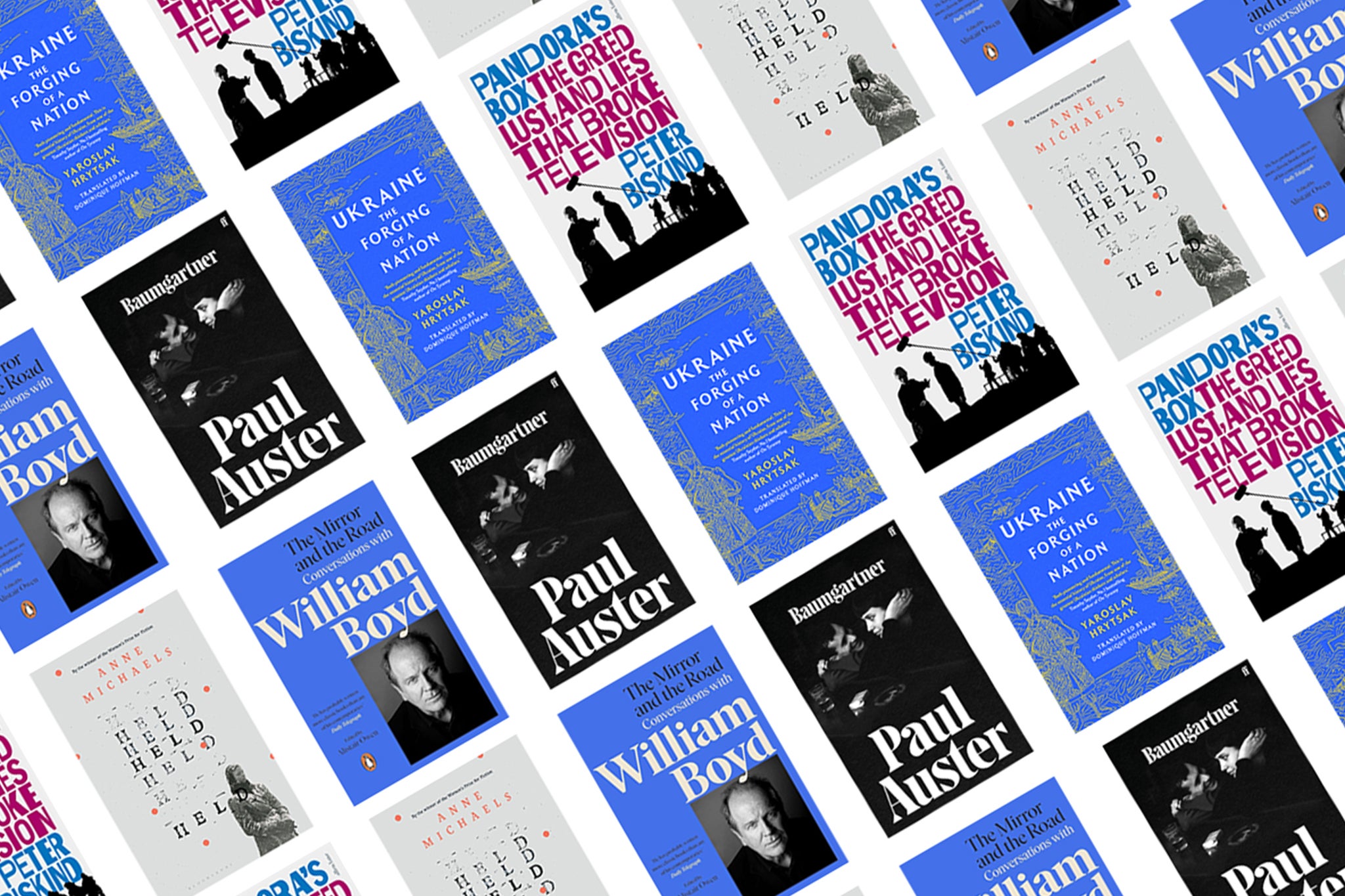
Imagine being invited out for an evening meal only to discover that your fellow guests comprised Nigel Farage, Dominic Cummings, Andrew Neil, David Cameron and Boris Johnson. To borrow comedian Richard Lewis’s phrase, it would surely be the dinner party from hell. These five dismal men make up half of the influential leaders discussed in James O’Brien’s scorching polemic How They Broke Britain (WH Allen). O’Brien, radio host of a popular current affairs programme on LBC, also chews out Rupert Murdoch and Paul Dacre in his sections about a print media he believes has “grown fat on the commoditisation of hatred and othering”.
There is a chapter on Jeremy Corbyn, whom O’Brien berates for his “arrogance, delusion, stubbornness and incompetence”, while Liz Truss is the sole woman deemed “worthy” of inclusion in O’Brien’s pick of the influential leaders who wrecked Britain. The remaining target is right-wing guru Matthew Elliot. How They Broke Britain is a sweeping, dismaying read, yet it is also a persuasive, entertaining account of the damage done to our nation by this cast of creeps.
If you have an appetite for more debris, Broken Code: Inside Facebook and the Fight to Expose Its Toxic Secrets (Torva) is an investigative book dealing with some of the recent scandals that have engulfed the social media behemoth now called Meta. Among the cases examined by Wall Street Journal reporter Jeff Horwitz are the 2019 videos that reportedly appeared under the aegis of footballer Neymar, who has more than 150 million Instagram followers. Facebook’s internal review dealt with allegations of “revenge porn” and Horwitz recounts how the company’s operational guidelines stipulate that people who post such material “should have their accounts deleted”. And yet, claims Horwitz, “faced with the prospect of scrubbing one of the world’s most famous athletes from its platform, Facebook blinked.”
Meanwhile, the environmental, mental and social costs of advertising are examined by Andrew Simms and Leo Murray in Badvertising: Polluting Our Minds and Fuelling Climate Chaos (Pluto Press). The chapter ‘How Airlines Took Us for a Ride’ examines, among other things, how companies, starting in the 1950s, sexualised ‘flight attendants’ to drum up business. This was still going on in the 21st century, when easyJet ran an advert in the Evening Standard during the Iraq war that showed a woman in a skimpy bikini top with the tagline: “Discover weapons of mass distraction”. Despite hundreds of complaints, the Advertising Standards Authority ruled that the advert “did not cause offence” and was simply “light-hearted and humorous”.
For fans of historical fiction, I would recommend Fanatic Heart (Faber) by Thomas Keneally, author of the Booker-winning Schindler’s Ark. His new novel is a gritty tale of the life and exploits of 19th-century Irish patriot John Mitchel. I also enjoyed James McBride’s The Heaven & Earth Grocery Store (Weidenfeld & Nicolson), an astute novel about small-town secrets, racism and poverty, set over various periods of the 20th century.
As memorable lines in songs go, Johnny Cash’s “I keep a close watch on this heart of mine” and “because you’re mine, I walk the line” are up there with the best in popular music. Fans of the late country singer-songwriter will find much to enjoy in Mark Stiepler’s Johnny Cash: The Life in Lyrics (White Rabbit), which is full of stunning photographs and archive memorabilia.
Finally, for cinema aficionados, I would recommend Peter Cowie’s God and the Devil: The Life and Work of Ingmar Bergman (Faber), which contains unseen notebooks and correspondence from the filmmaker who left the world masterpieces such as The Seventh Seal, Wild Strawberries and Fanny and Alexander.
Novels by William Boyd, Paul Auster and Anne Michaels and non-fiction by Yaroslav Hrytsak and Peter Biskind are reviewed in full below.
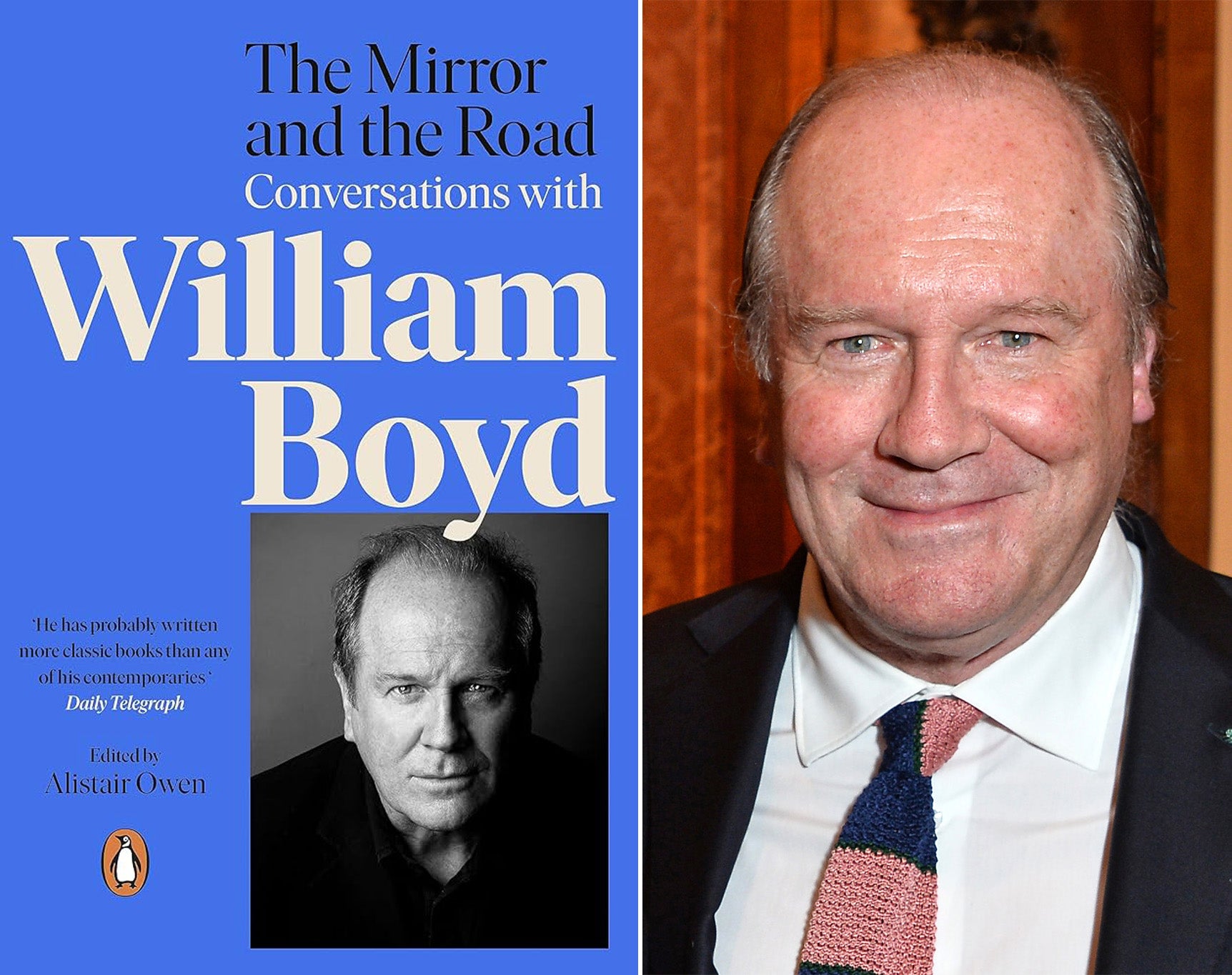
The Mirror and the Road: Conversations with William Boyd, edited by Alistair Owen ★★★☆☆
In wide-ranging interviews with William Boyd, the author of An Ice Cream War and Any Human Heart talks about subjects as varied as the class system, Brexit (“deeply dispiriting and thoroughly mendacious”), Charlie Chaplin and his love of literature.
In sections on Boyd’s own fiction, screenplays and stage plays, The Mirror and the Road editor Alistair Owen has compiled a fascinating insight into a writer looking at his own trade, right down to how to start a novel. “I’ve always felt that the first page of a novel is vitally important,” suggests Boyd. “You have your reader there for maybe just the duration of the page and you have to make it alluring, you have to make them wonder what is going to happen next.”
The book will obviously have great appeal to fans of Boyd – and literary interviews in general – and his opinions are erudite, enlightening and often amusing. And these conversations could also drive readers back to exploring some of Boyd’s favourites. I’m keen to re-read Scoop after this reminder from Boyd of Evelyn Waugh’s genius. “No novel is perfect but Scoop is as close to a perfect comic novel as you can get,” states Boyd, “and I think it has the funniest chapter in all of English literature, when Mr Salter goes to Boot Magna to try to persuade William to return to the newspaper.”
The Mirror and the Road: Conversations with William Boyd, edited by Alistair Owen is published by Penguin on 2 November, £10.99
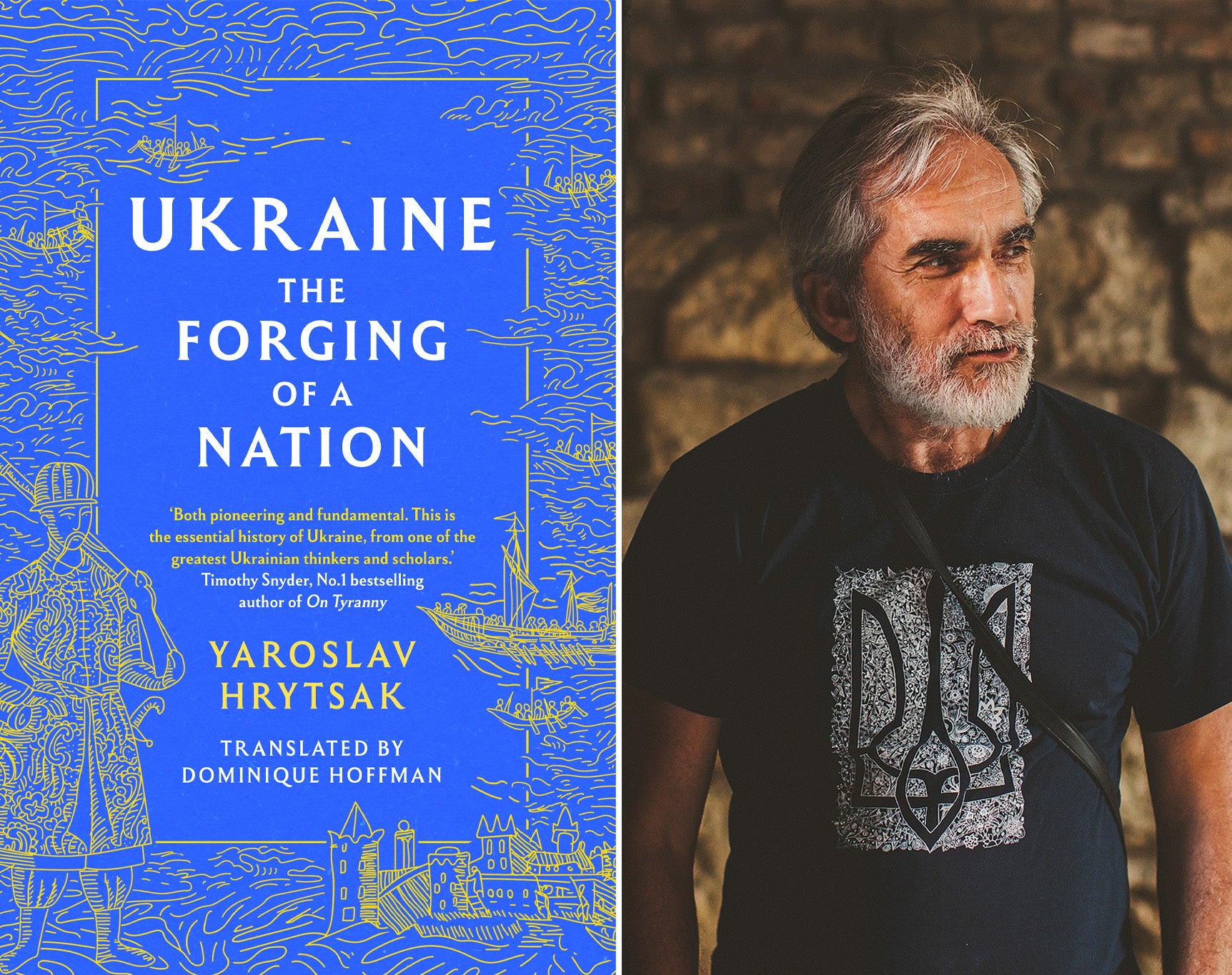
Ukraine: The Forging of a Nation by Yaroslav Hrytsak ★★★☆☆
In November 2023, we passed 600 days since Russia launched its full-scale invasion of Ukraine, so a book on the pivotal events that have shaped Ukraine’s history seems a timely read.
Ukraine: The Forging of a Nation, translated by Dominique Hoffman, goes back to the roots of the present conflict and also details the horrors Ukrainians were subjected to by the Nazis – including wholesale murder of native Jews and Roma – during the Second World War.
Joseph Stalin seemed to hate and fear Ukraine as much as Vladimir Putin; the Communist leader deliberately underplayed Ukraine’s contribution to the Soviet efforts in the Second World War. Yaroslav Hrytsak, who is a professor at the Ukrainian Catholic University and who has taught at Columbia and Harvard, estimates that Ukraine lost more than nine million people (military deaths and civilians), and possibly as many as 14 million people, fighting Hitler.
Much of the book deals with the history of the country before Putin’s invasion, and Hrytsak offers the opinion that “when Putin started this war, he operated on the belief that the West as such didn’t actually exist, only individual western countries existed. He assumed that each of them would pursue their individual interests and that Western values are a fiction. Putin’s assumptions were proven false.”
Ukraine: The Forging of a Nation is a valuable contribution to understanding the roots of the violence and suffering the people are facing there every day.
Ukraine: The Forging of a Nation by Yaroslav Hrytsak is published by Sphere on 2 November, £25
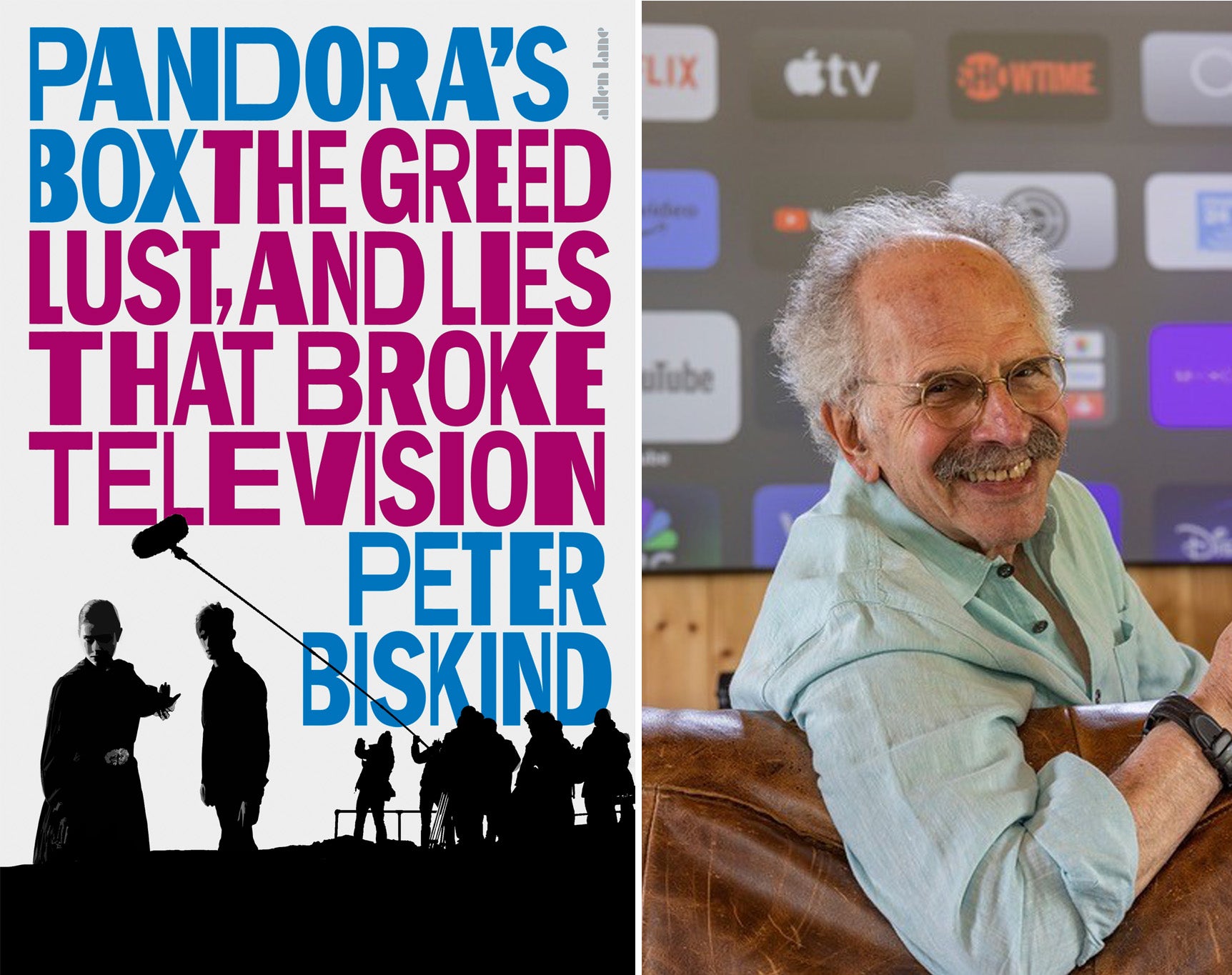
Pandora’s Box: The Greed, Lust, and Lies That Broke Television by Peter Biskind ★★★★☆
It seems that having a “difficult” mother can help when it comes to creating great television. When The Sopranos creator David Chase was explaining the character of Livia Soprano, mother of mob boss Tony, he told musician Steve Van Zandt, who played Silvio, “that’s my mother”. In Peter Biskind’s Pandora’s Box: The Greed, Lust, and Lies That Broke Television we learn that when Chase was 12, his mother “threatened to put his eye out with a fork because he wanted a Hammond organ”.
Alan Ball based Ruth, the matriarch of the Fisher family in Six Feet Under, on his own “religious nut” mother. Her reaction to his “coming out” has to be read to be believed. When he first pitched Six Feet Under to HBO, Ball was asked by executive Carolyn Strauss “could you make it just a little more f***ed-up? And not tie everything up in a nice little bow?”. That licence to push boundaries is at the core of a lot of the best television series that are dealt with in the book, including The Sopranos, The Shield, Breaking Bad, Six Feet Under, The Wire, Deadwood, Mad Men and Succession.
The individual stories and anecdotes are compelling – there are some terrific stories about the late James Gandolfini and Walton Goggins – although it was dismal to learn that Garry Shandling, creator and star of the brilliant The Larry Sanders Show, “didn’t like working with women”.
Biskind’s accounts of the appalling treatment of women in the television industry make you wince, and lots of the executives and stars come across as deplorable human beings. A story about the humiliating ordeal that actress Heather Kristin – stand-in for Kristin Davies – endured on the set of Sex and the City is truly vile.
Matt Weiner, who created Mad Men, doesn’t come out well in the book, although it’s interesting to note that he “hated the AMC executive so much that he wrote versions of them into the show”, including the back-slapping character Duck Phillips.
As well as looking at individual shows, Biskind, former editor-in-chief of American Film magazine, examines the trends in the streaming industry and what the future holds for HBO, Netflix, Apple TV+, Amazon Prime and Disney+. He believes that movie studios will become “no more than feeders for the streaming services”.
Television has provided us with some of the most memorable “bad guys” of modern culture, including Breaking Bad’s Walter White and The Shield’s Vic Mackey. Biskind also warns that the era of horrible anti-heroes may be under threat, however, and believes that the saccharine Ted Lasso may signal what he calls “the end of discomfort viewing”. If you are a fan of good television, you will love this book.
Pandora’s Box: The Greed, Lust, and Lies That Broke Television by Peter Biskind is published by Allen Lane on 7 November, £25
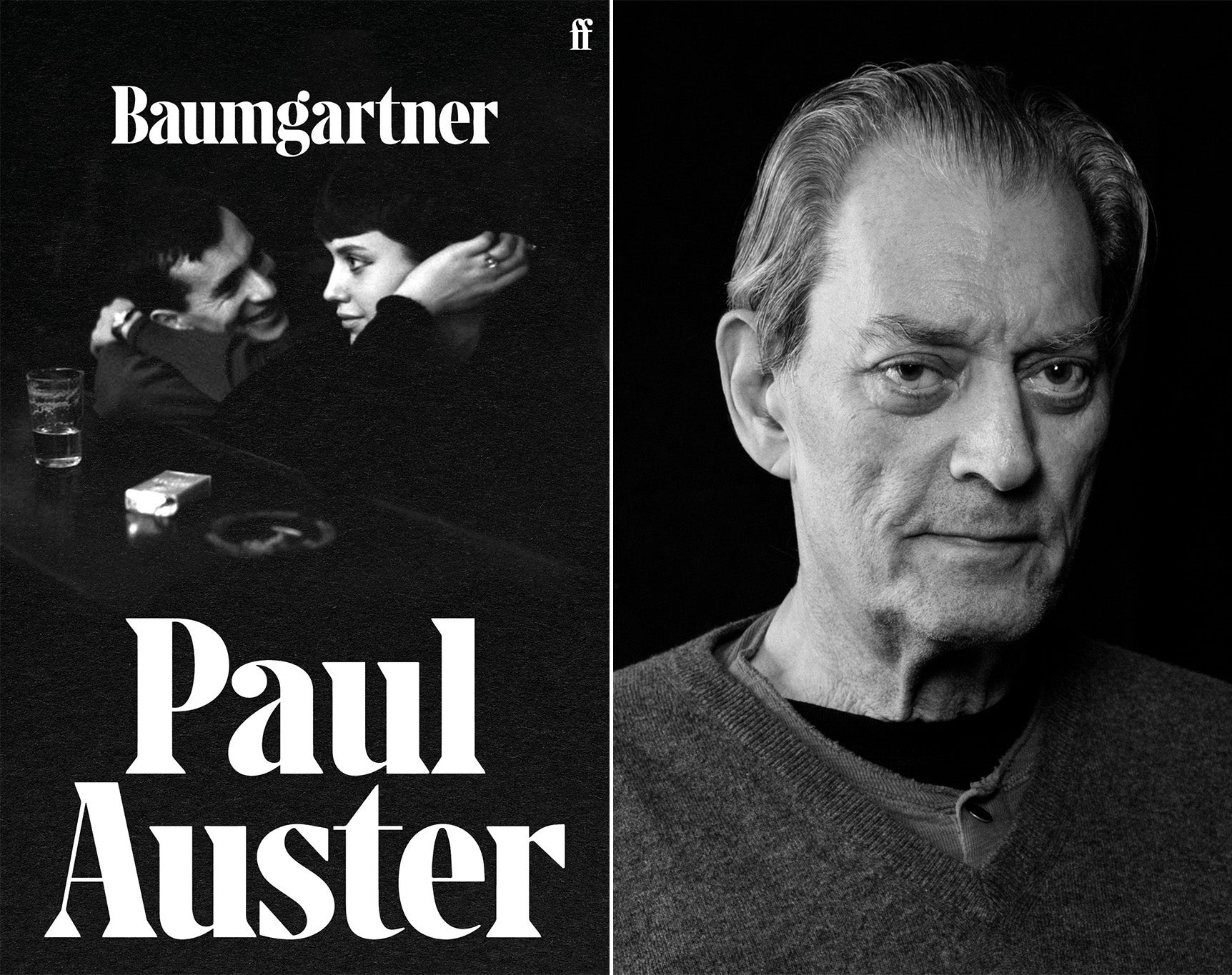
Baumgartner by Paul Auster ★★★★★
I liked academic Sy Baumgartner from the opening paragraph, which features his jokey reference to his study – something he calls “his cogitorium”.
Paul Auster, a masterful writer, tells the story of Baumgartner’s mishaps and decade of “self-inflicted torment” as the protagonist looks back on the family and friends who helped shape his character and his life with wife Anna, a brilliant unpublished poet who died in a tragic accident, aged 58.
Baumgartner’s recollections are sometimes seemingly small and inconsequential but are even more resonating for what he draws from the minutiae of existence. In addition, the minor characters of Baumgartner – including the delivery boy Ed Papadopoulos, who is first seen as a “good-natured oaf” and who ends up being revealed as a man with “a gift for spreading life wherever he happens to go” – are vehicles for Auster to examine the deep emotional truths of life.
The book is beautifully written, a wise and unpredictable examination of the “the lost world of Then”. Auster examines why some fleeting, random moments persist in the memory, while other, supposedly more important moments, vanish forever. Auster, like his protagonist, is in his seventies – and this veteran controls the narrative with an expert hand. I loved this magnificent novel.
Baumgartner by Paul Auster is published by Faber on 7 November, £18.99
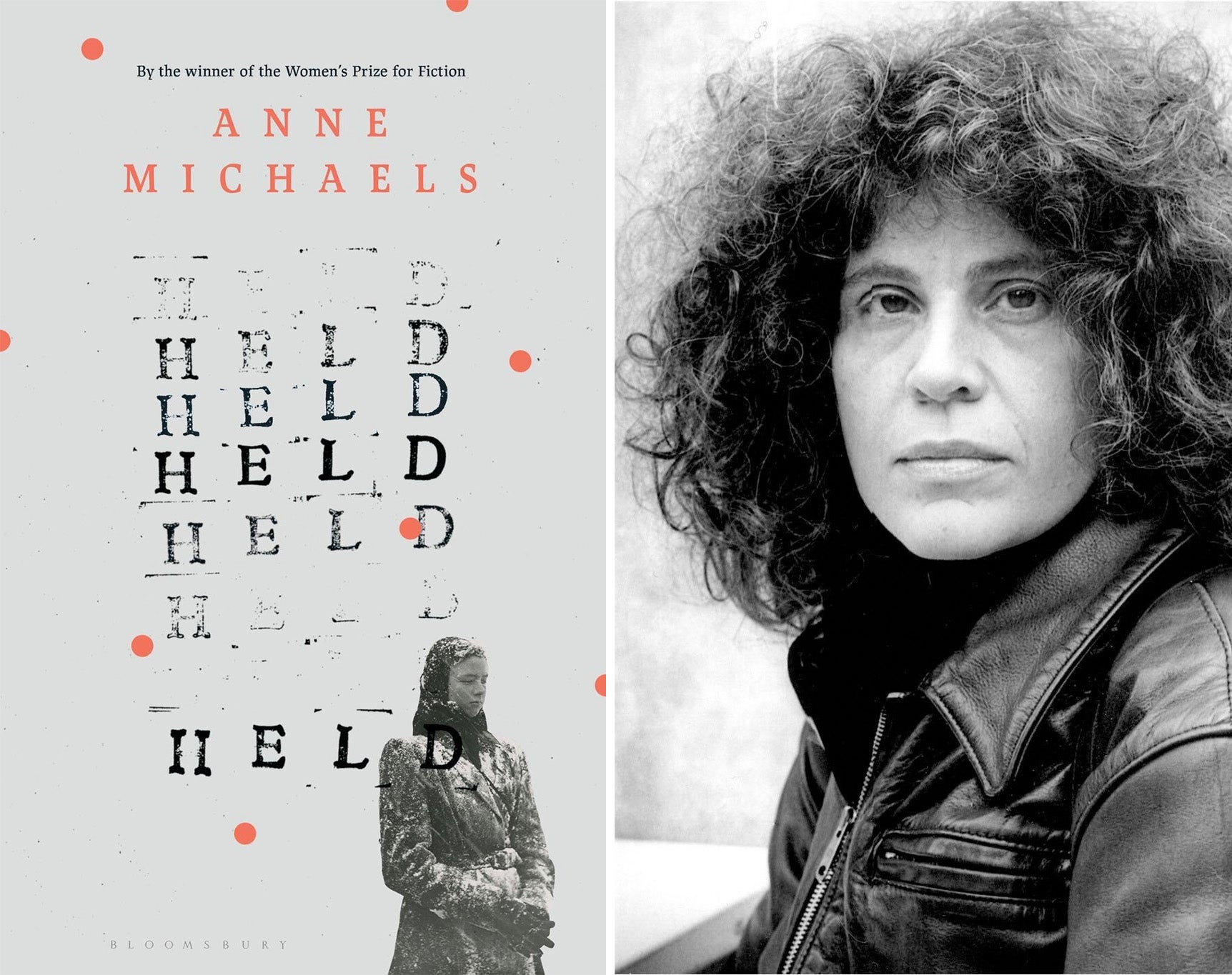
Held by Anne Michaels ★★★★★
Toronto-born Anne Michaels is a writer who moves gracefully between award-winning poetry and captivating fiction – and there is a lyrical beauty to her new novel Held, which weaves across time from 1917 to 2025, spanning four generations.
Held opens on a First World War battlefield near the River Aisne in 1917, where John lies in the falling snow unable to move or feel his legs. This strange, broken man returns home to Helena, an artist, in Yorkshire, and Michaels delicately and compassionately explores themes of hope and redemption. The Canadian has said that in this new fiction she wanted to explore the effects, over time, of our inner lives, and how our inner comprehensions, desires and doubts work slow transformations. She has a poet’s ability to capture how memory seeps, how it is always alight, “like a long fuse”, and her descriptions are full of clarity and unsettling insight. For John, the fragments of childhood memories (“peeling the brown paper skins of the chestnuts to the steaming meat”) mix with adult reflections on mortality (“would he know the moment of his death or would it be like night falling?”).
My favourite of the 12 chapters is a riveting, intense one set in London in 1951, when Helena poses naked for a demanding, mercurial artist. Hope is a constant theme in the work of Michaels, a former winner of the Orange Prize for Fiction and the Commonwealth Poetry Prize, and the gorgeous Held confirms why she believes that “hope is never a luxury. It is a necessity, and it is powerful.”
With Anne Michaels you know you are in the presence of a real and rich sensibility.
Held by Anne Michaels is published by Bloomsbury on 9 November, £16.99
Subscribe to Independent Premium to bookmark this article
Want to bookmark your favourite articles and stories to read or reference later? Start your Independent Premium subscription today.
Join our commenting forum
Join thought-provoking conversations, follow other Independent readers and see their replies
Comments